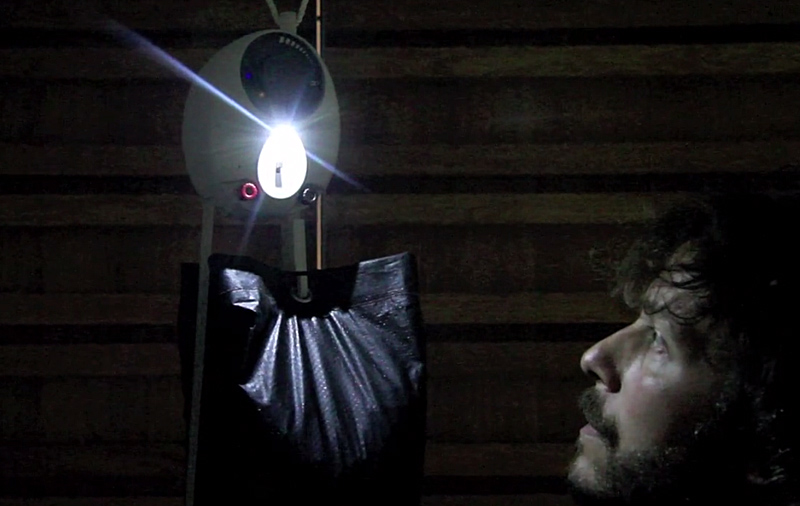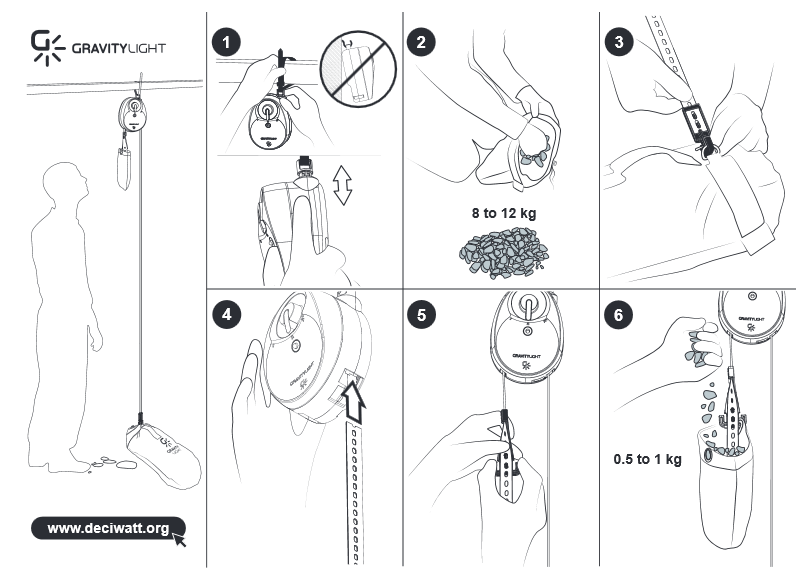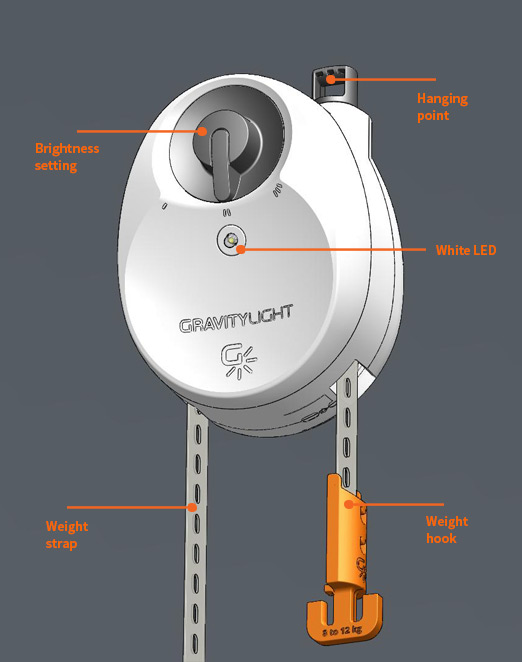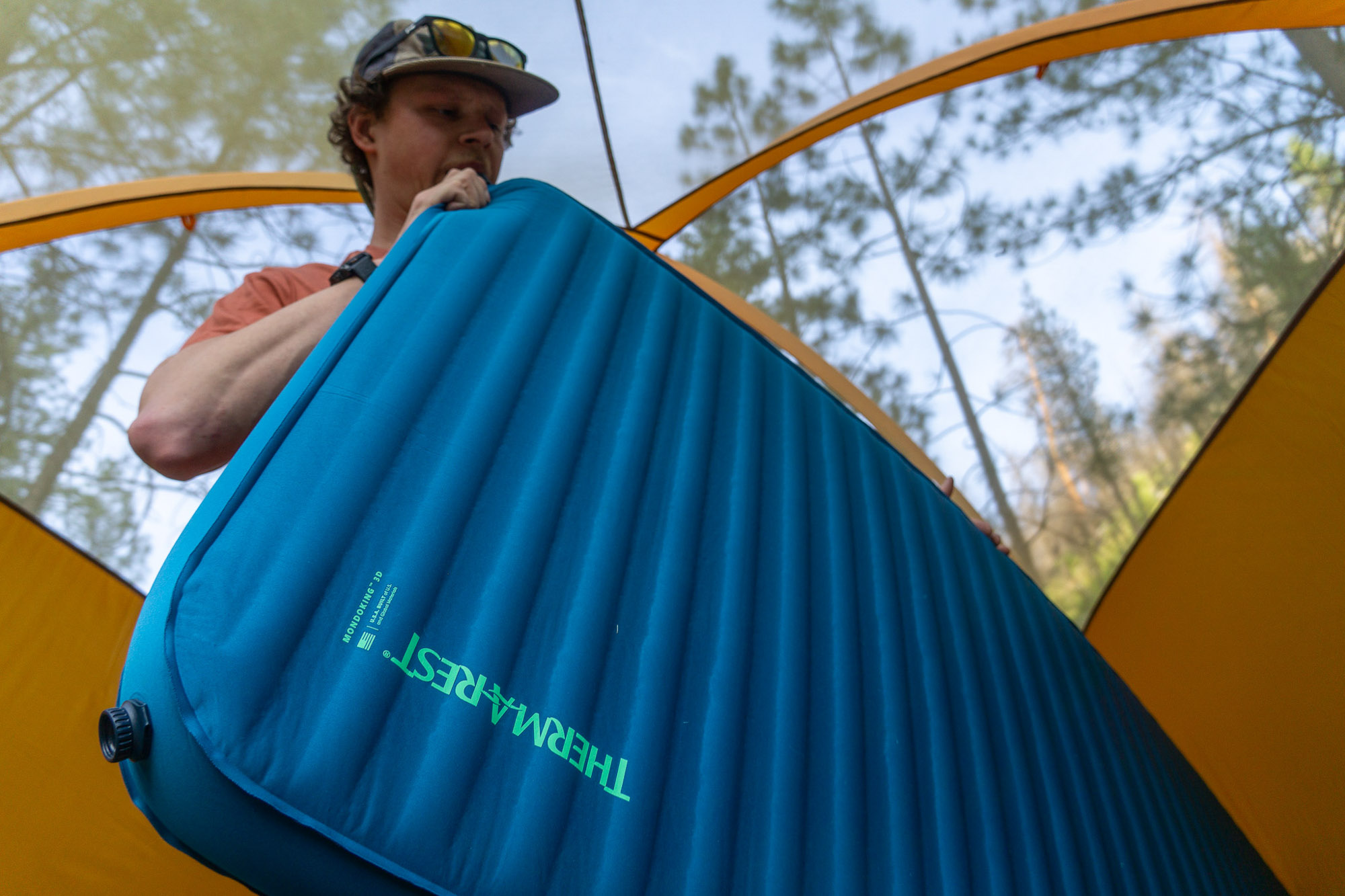
In the last few years, all kinds of sources have been tapped to provide portable power. Hydrogen “pucks,” wood stoves, cooking pots and solar panel generators all power USB devices and small electronics.
This is the first time we’ve seen gravity harnessed to directly power anything (OK, not including hydroelectric power plants). In this case, it’s a light designed to replace kerosene lanterns in poor regions around the world.
The Deciwatt GravityLight is a light powered by the slow descent of a weighted bag that holds up to 12.5 kilograms of ballast material, which could be basically any heavy substance. A person lifts the weight and turns on the light. As the weight slowly descends, it powers a small generator that powers a light.

Depending on one of three power settings, the device will then generate from between five and 15 lumens for between 28 to 12 minutes respectively. When the light goes out, just lift the weight back up to the starting position and it will resume generating light — no fuel needed.
A positive and negative terminal on the GravityLight also provides power to recharge batteries or other small electronics.
Currently the GravityLight is in final testing stages before a full global release, likely later this summer.

The light is designed to replace kerosene lanterns in developing nations, but I can’t help but see potential applications in the outdoor world, especially if the weight could be replaced with found objects like rocks. It could also be helpful in off-the-grid locations like cabins or while car camping.
The GravityLight was inspired by a challenge issued by the charity Solar Aid to design an LED lantern to replace harmful kerosene lamps. The challenge was to develop a light with a photovoltaic panel and battery for under $5. The company eventually decided to use the unique power source in place of solar power, and the GravityLight was born.

There is definitely a demand for this device. After setting a modest goal of $50,000, Deciwatt raised an eye-opening $400,000 on the crowd-sourcing site Indiegogo.
While final pricing on the light has not been set, the company said it believes that once large-scale production begins, the light should sell for a wholesale cost of between $6 and $7. That should equate to a retail price of less than $20. —Sean McCoy






